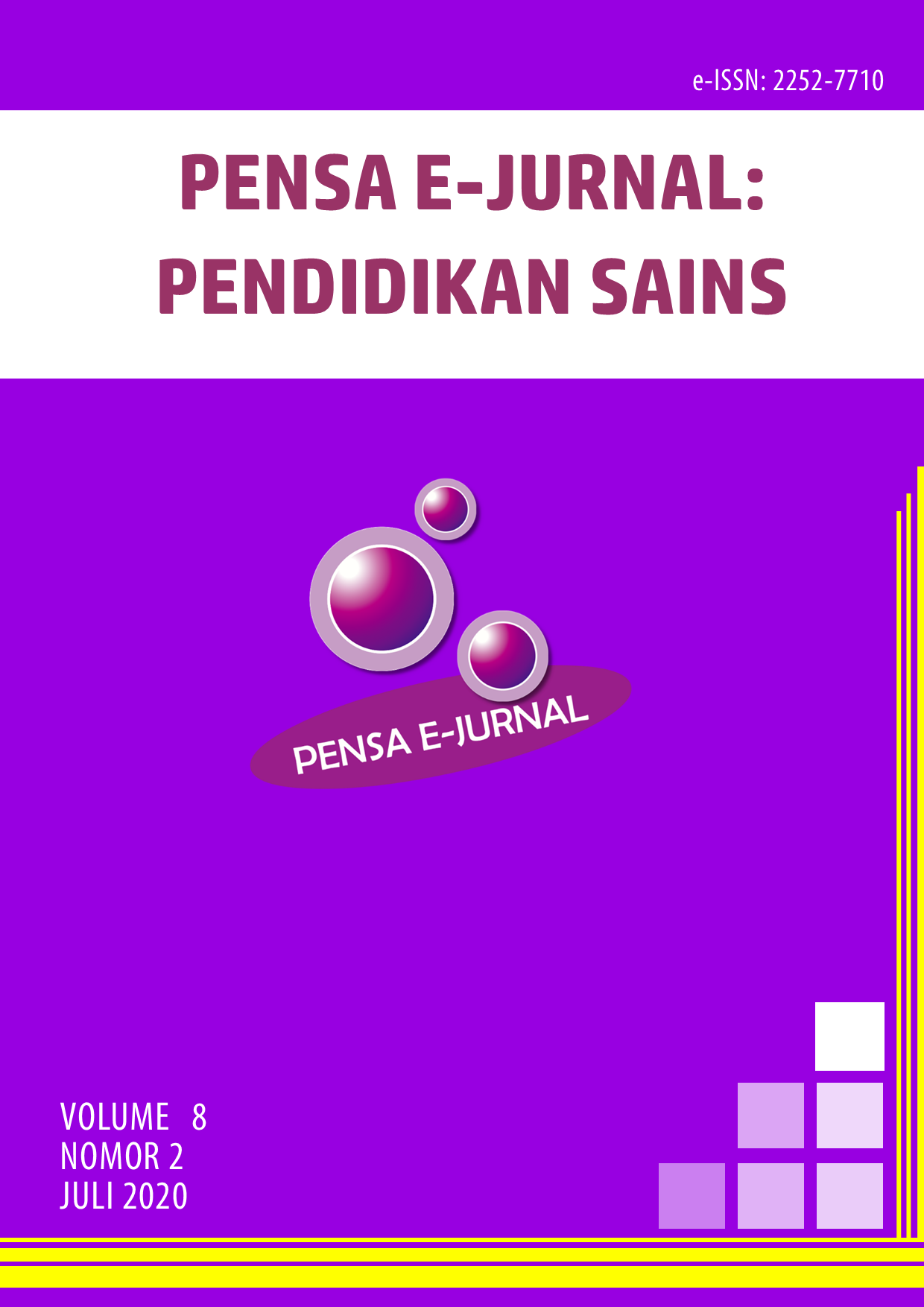VALIDITAS LKS BERBASIS PROBLEM BASED LEARNING MATERI PEMANASAN GLOBAL UNTUK MENINGKATKAN KETERAMPILAN BERPIKIR KRITIS SISWA KELAS VII SMP
DOI:
https://doi.org/10.26740/pensa.v8i2.38351Abstract
The research aims to describe the validity of the PBL-based student sheet of global warming material towards critical thinking skills in grade VII students in junior high school. This type of research studies the development. Step in development activities using the 4D stage (Define, Design, Develop, Disseminate), but this research is limited to the stage of Develop. The participants of this research are two members of the FMIPA UNESA faculty and a Junior science teacher at junior high school SHAFTA Surabaya as a validator. Data collection techniques for measuring eligibility using poll techniques. The instrument used is a validation sheet for measuring validity, with the assessed aspect being the presented content and language. The data analysis techniques used are quantitative quasi with average and analysis based on the Likert scale. The student sheet can be said to be worthy if the score in all aspects of the validation sheet reaches a percentage of >61%. Data analysis results show the validity of the sheet of students for a content of 89.33% (very decent), and the aspect of the language is 86.67% (very decent). Thus, the conclusion suggests that a PBL-based student sheet of critical thinking skills on global warming matter qualifies as valid and deserves to be used as a learning resource at junior high school.
Downloads
Downloads
Published
How to Cite
Issue
Section
 Abstract views: 521
,
Abstract views: 521
, PDF Downloads: 435
PDF Downloads: 435

















